
My mother-in-law, Amptee, is a very traditional Jordanian woman, having lived on and from the desert land all her life, and is a wealth of knowledge that has been passed on from generation to generation.
The olive is a very traditional part of the Jordan diet and culture, as it has for 1000s of years. In fact, not far from our site there are olive trees that are more than 2000 years old and still fruiting well.

‘Amptee’ actually means ‘auntie’, and this is what everyone who works on our project calls her, but her actual name is Amnah Talak, of the Al Dasaat tribe from Gore Safi in the Jordan Valley. Amptee grew up on the land herding sheep and goats and working on her family’s farm. My wife, Nadia, is the oldest of her 11 children — eight daughters and three sons — and now she has 25 grandchildren. She is one of the strongest, kindest and hardest working women I have ever met and she anchors our project in Jordan like a foundation stone. I care for her dearly, like my own mother who I have lost.
Amptee is all about being totally appropriate and practical in her approach to the land, its produce and its processing, so when it comes to processing her olives on our project she takes the path of least resistance. If plastic bowls, bottles and bags are the easiest and cheapest and they work fine, then that is what she uses. Trendy, hippy or foodie culture means nothing to her — everything is just about real things in everyday life and is all taken in her strong stride.
Amptee picks the olives straight from the trees and then in the kitchen puts a cut with a knife in each olive before placing them in a tub of water for three days, changing the water each day, after which she then puts them in a fully saturated salty water solution for a month. After that month, she then puts them into a plastic bag, along with pieces of chili and slices of lemon, with minimum salt water — just enough to cover them — and she puts the bag into a jar. They are ready to use a week later. The oil rises from the olives to the surface, and they taste wonderful as a real organic desert olive.
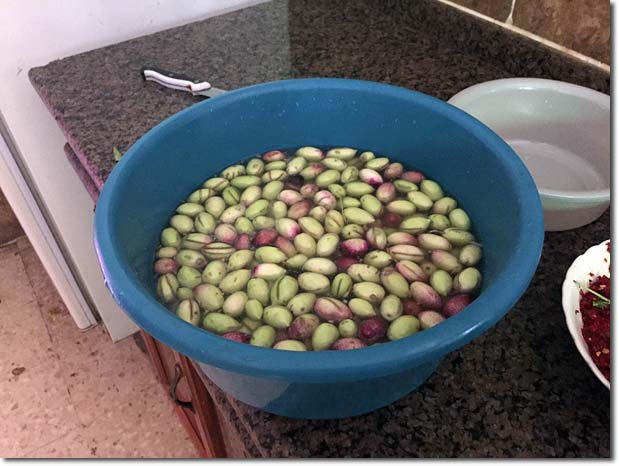
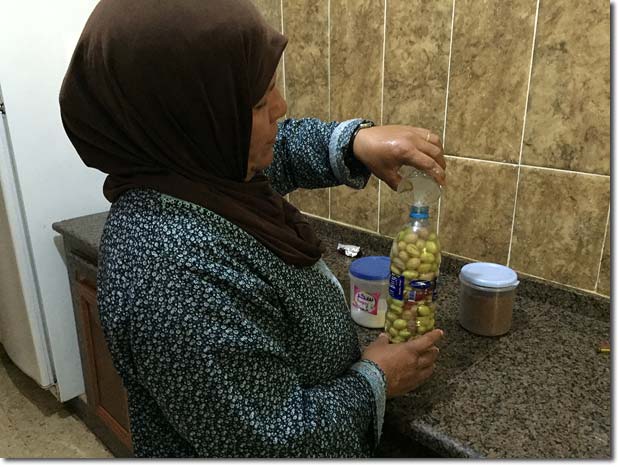
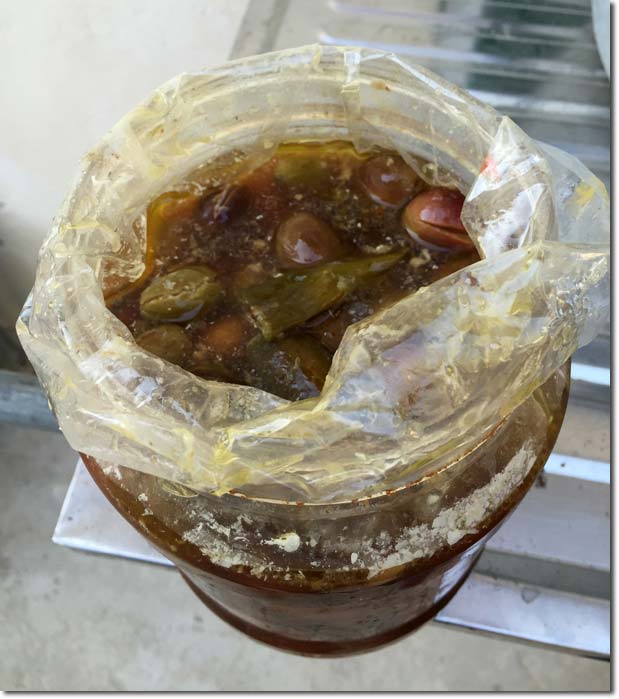

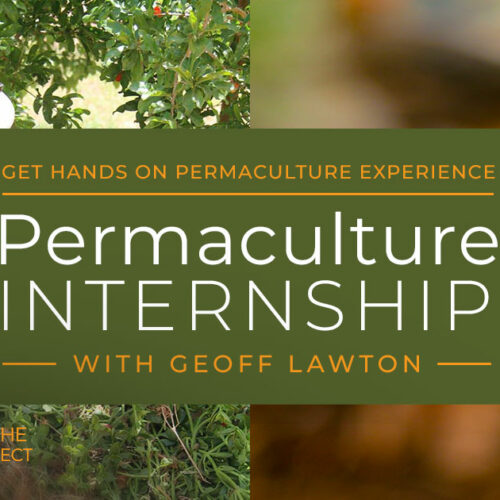
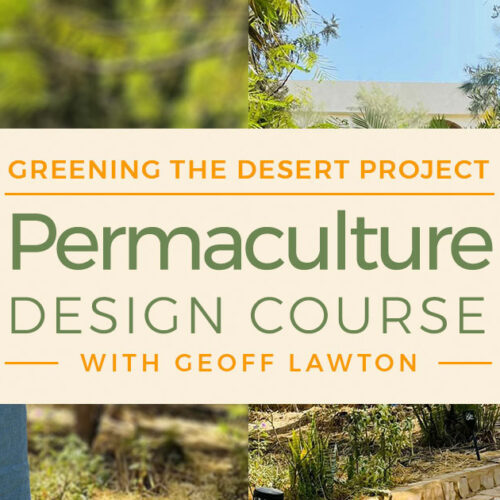
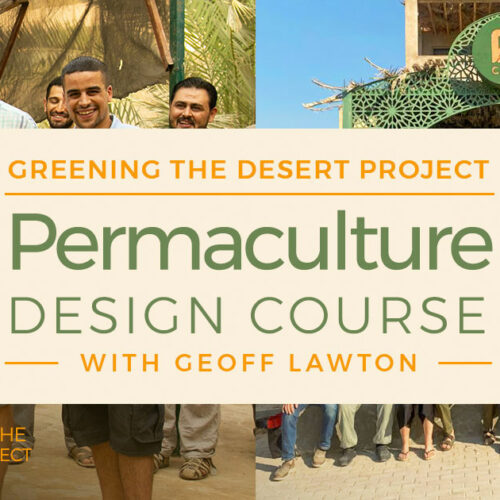
These olives are great but they don’t look like those olives that we buy in stores, maybe some local variety
I first saw olives on a tree in Greece and tugged one off the tree for a taste. Bad, bad decision. I soon learned how important that salt soak was. LOL
Really nice story. Thank you! My in-laws do the same in Cyprus. One of these days I will try it myself.
This was a very good article. I enjoyed it so much. And, those olives in the last picture looked delicious! I hope to get an olive tree soon.
Wonderful Geoff! My aunties in the occupied West Bank of Palestine used to make olives this way too. I have never tried to make them myself but am tempted to do so now, as I prefer the flavour to the Spanish ones in Andalucia where I now live.
Shame I only started getting into permaculture as we were leaving Jordan where we lived for a several years. Seems there is much happening there that I would have loved to have been a part of. Needless to say it would have been wonderful to meet you and Nadia. Another time inshallah!
Hi Amptee,
Thanks for teaching me to make flat bread. Even tho we have never spoken the same language, we still learn from each other. Now, your way to make cured olives… with great photos.
Lovely article! We have been taught by local people to prepare our olives pretty much this way in Andalucia too, but I wanted something less salty and have modified the method for the last few years. First of all soak your olives in a solution of bicarbonate of soda (1 heaped dessertspoon per litre of water) for 24 hours. This takes out a lot of the bitterness. Then soak in (preferably) spring water, changing it every 24 hours until they taste just a little stronger than you would like, then bottle in a mix (2 dessertspoonfuls salt, 125ml vinegar and 750ml water). Use however much you need to cover the olives, save surplus for the next lot. As you bottle, add in whatever mix of herbs/spices/garlic/chillis/citrus peel takes your fancy. I usually pour a little olive oil on top to seal the mix. Yum! What is the function of the plastic bags? Do they help to keep the air out of the mixture?
What a wonderful article! It warms my heart. The olives look delicious! She carries Wisdom from generations in the desert. There’s a lot to learn from her. 🙂
Oh my, they look tasty!
Totally off-topic drift: it just dawned to me where Latifa gets here left-handedness; from Grandma.
If the olives are going into a jar, I am wondering why you need to use a plastic bag?
Here in Norhwest Kent UK I have a small micro-climate corner. In it are plants I did not expect to survive the heavy frosts and constant cold east winds experienced here. Helping survival is a wisteria which has grown through the bottom of its bucket and some shelter is provided by an elder shrub and a large
rosemary bush. Four olives comprise my mini olive grove and they are doing well so I have copied down the recipe above just in case I get a yield in the future.
The plastic bag is a good idea,thus the gar does need not to be sterilised.It saves a lot of prep work.